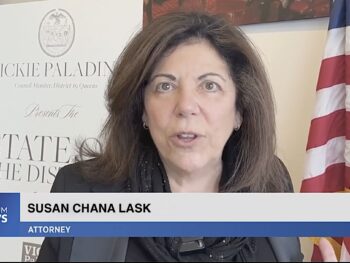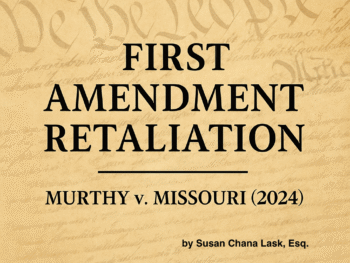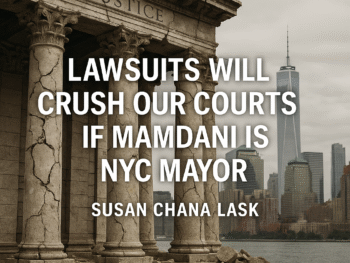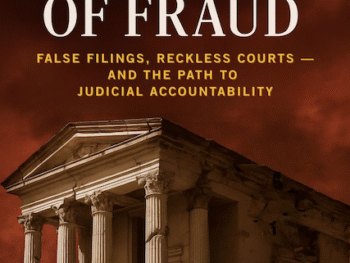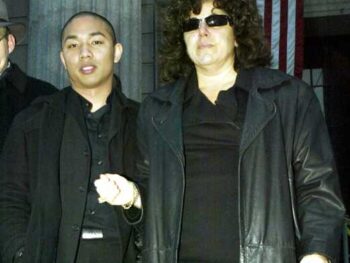Buffalo foreclosure law firm faces suit
Steven J. Baum PC accused of fraud
Updated: October 17, 2010, 6:57 AM
By Jonathan D. Epstein NEWS BUSINESS REPORTER
As a national crisis builds over allegations of foreclosure fraud, and New York joins other states in a multistate investigation and in calls for a freeze on home seizures, Buffalo’s biggest foreclosure law firm is drawing complaints for its own practices.
A New York City attorney representing two downstate homeowners has filed a lawsuit against Steven J. Baum PC, calling the law firm a “foreclosure mill” that engages in “sloppy, irresponsible” work as part of a mortgage industry conspiracy to bilk homeowners.
The suit accuses Baum of knowingly and fraudulently filing foreclosures, paperwork and false notarizations statewide on behalf of lenders that don’t hold the actual mortgages, including HSBC Bank USA and its mortgage subsidiary.
Instead, the lawsuit says, the firm faked foreclosure and other documents when necessary, in order to preserve about $200 million a year in “reliable” income. And it accuses the firm of racketeering, fraud, deceit, unjust enrichment and violations of federal mortgage and debt collection laws.
Finally, the suit, which is filing for class-action status, seeks restitution for tens of thousands of former homeowners and punitive damages worth hundreds of millions of dollars, as well as a restraining order. The case is still pending, and has not been granted class-action status.
“This is the biggest fraud in history, and it’s being done by the attorneys. The banks wouldn’t be able to do it without the attorneys,” said attorney Susan Chana Lask. “These attorneys are not acting like attorneys.”
The Baum firm issued a brief comment.
“Because of confidentiality reasons, we cannot comment on this specific matter,” the firm said in a statement. “However, we follow the rules and regulations regarding the various pro-
cesses involved in a foreclosure proceeding and take the utmost care in doing so.”
The lawsuit was originally filed in August and recently amended. It and allegations against the Baum firm come amid an emerging nationwide mortgage crisis nationwide that has largely bypassed the Buffalo Niagara region. Western New York, with its stable housing market, never experienced a real estate bubble so it has not suffered the resulting avalanche of foreclosures.
But the firm handles foreclosures from across the state.
A spokesman for New York Attorney General Andrew M. Cuomo said the attorney general’s office has received complaints about the Baum firm, but would not confirm an investigation.
Based on Northpointe Parkway in Amherst, Baum is a leading foreclosure and collections law firm, representing creditors. The firm was founded in 1972 by Marvin R. Baum, taken over by son Stephen in 1999 after Marvin Baum’s death, and renamed in 2002. It’s known to handle about 40 percent of foreclosures in upstate New York, but also does work downstate for its bank and lender clients, and has a Long Island office.
HSBC was the lender or servicer for both homeowners listed as plaintiffs in the lawsuit, but is not named as a defendant. The suit does name the Mortgage Electronic Registration Systems, or MERS, as a defendant, as well as some employees of both Baum and MERS.
MERS is an electronic mortgage registry created by the industry in 1996 to make it easier to administer the buying, selling and servicing of loans, without filing separate “assignments” each time a loan is sold. It’s based in Virginia, with about 40 employees, the suit said.
Nationwide crisis
The national problems center around a combination of allegedly improper foreclosure paperwork and procedures, as well as the use of “robosigners” at loan servicing companies that sign off on thousands of foreclosures without actually reviewing them.
The banks and law firms assert that the basis for the foreclosures — the borrowers have defaulted — is solid. They describe the problems as technical in nature, saying they involve documentation, not facts, and can be resolved quickly.
However, Ally Financial, parent of GMAC Mortgage, said on Sept. 20 that it was temporarily suspending foreclosures in the 23 states where courts are involved in home seizures. The company said it had become aware of faulty affidavits filed in court, in which employees falsely attested to personally knowing the circumstances in each foreclosure.
Citing such “robo-signing,” mortgage giants J. P. Morgan Chase & Co. and Bank of America Corp. soon followed suit, and all three eventually extended their temporary moratoriums or reviews to all 50 states. Pittsburghbased PNC Financial Services Group and Goldman Sachs Group’s Litton Loan Servicing also halted foreclosures.
Calls for industrywide foreclosure moratoriums have soared, with members of Congress, state lawmakers, consumer advocates, community groups and labor unions chiming in. Cuomo and the New York Banking Department have both called for servicers to suspend and review foreclosures, as did the U. S. Comptroller of the Currency, which regulates national banks.
That’s having an impact locally. Marissa Villeda, supervising attorney for the Western New York Law Center, said some of her clients have had pending foreclosures suddenly stopped by the banks. The law center fights foreclosures on behalf of borrowers.
“I think banks are becoming aware that this is a problem,” she said.
Also, the Senate Banking Committee is planning a hearing on the issue on Nov. 16. And Fannie Mae and Freddie Mac, the government-owned mortgage giants, have threatened financial sanctions against lenders if they don’t clean up their acts.
And what started as investigations and even lawsuits by at least seven states has now turned into a industrywide probe by the attorneys general in all 50 states and banking regulators in 35 states.
‘Making stuff up’
Locally, judges “are looking into how they’re going to handle their foreclosures” and “how to verify that the affidavits submitted by banks and attorneys are actually valid,” said Villeda of the Western New York Law Center.
Their objections, and those in Lask’s lawsuit, often focus on who actually owns and holds the mortgage. The ownership of the mortgages has been muddied over the years by “securitizing” the loans.
That refers to the process by which banks sell mortgages on the secondary market, often repeatedly, and ultimately package them into investment securities. In turn, those are sold in pieces to investors.
According to Lask’s lawsuit, Baum’s firm filed to foreclose on the homes of Concepcion Campbell of Brooklyn and Jeffrey Miller of Sullivan County, claiming to represent HSBC as the lender. But it was not able to produce the actual loan note, despite demands to do so.
Baum’s firm claimed in court that Miller’s loan was assigned to HSBC as of the date of the foreclosure filing, but county clerk documents showed it was not assigned until two weeks later, the lawsuit said. And Lask’s lawsuit said the person who signed the transfer papers was an attorney for Baum, not a MERS executive as asserted.
“They’re making up their own rules, and that’s what frauds do,” Lask said. “They’re just making stuff up.”

